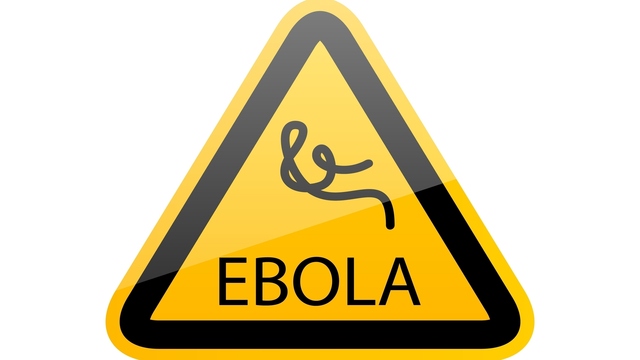 -=MadDog=-/PhotoSpin
-=MadDog=-/PhotoSpin
Although the United States may as well be declared Ebola-free, there is still a lingering fear in some minds that an outbreak is in the near future.
And if you live in West Africa, the fear is justified. The epidemic is ongoing and there is a higher chance of transmission.
The last patient in the United States being treated for Ebola has now been released, so there are currently no known cases in the U.S., according to WSB Radio.
However, for people who are still concerned about a potential outbreak of Ebola or another disease, experts have some points to consider.
Psychologist Samantha Madhosingh said in an email that fear of anything, including a viral outbreak, can lead to stress and distress, and sometimes it can be a trigger for extreme anxiety.
“As human beings, we often have a tendency to catastrophize situations,” she said. “That means looking for the next terrible thing to happen or imagining the very worst possibility.”
Fear just further increases the daily stress people already have.
Here are Madhosingh’s tips for staying calm during a potential Ebola epidemic in the United States :
1) “The best way to remain calm about a potential outbreak is to keep things in perspective.”
2) “It is also important to have current, accurate information, but not [be] drawn into mass hysteria. Be clear about how Ebola is spread and how it isn't. The virus is only transmitted through contact with an infected person's blood or other bodily secretions. So breathing the same air as someone or passing them on the street is unlikely to cause infection.”
3) “Armed with accurate information, you can take proper precautions to secure your own health without becoming overly anxious.”
4) “Sometimes over-watching news media can cause a problem. Yes, you want to have the most up-to-date information. However, watching the same piece of information over and over again can trick your brain into thinking the situation is much worse than it is and lead to anxiety.”
5) “Focusing on the reality of the situation in the present may help to alleviate fears about a future that may never occur.”
6) “One of the key things to help keep your body and brain calm is to practice deep breathing and remind yourself of the reality of your individual situation rather than buying into the ‘what if’ disaster.”
Amesh Adalja, a senior associate of University of Pittsburgh Medical Center’s Center for Health Security, said in an email that in order to keep calm, consider the following three facts:
1) “[Ebola] is only spread via contact with blood and body fluids — not casual contact. It is not like the cold or influenza. Only those with symptoms that cause blood and body fluid exposure (vomit, diarrhea) are contagious.”
2) Most of the contacts of the U.S. patients with Ebola never contracted the disease, including intimate contacts. In fact, only two nurses contracted the disease from the first person diagnosed with Ebola in the United States.
3) “The key is to be vigilant and aware but to keep the appropriate threat perspective in mind (e.g., influenza will kill more Americans than Ebola will).”
Dr. Joe Alton, the author of “The Survival Medicine Handbook” and “The Ebola Survival Handbook” shared the following soothing facts via email:
1) “Ebola can be deadly when modern medical facilities are scarce, but it is not a very hardy virus in general. It doesn’t contaminate water sources and is very unlikely to be passed through airborne means.”
2) “A routine of regular hand-washing with soap and water or alcohol-based hand sanitizer will greatly decrease the chance of infectious diseases from Ebola to Influenza.”
3) “Having some simple supplies like gloves and masks will provide additional assurance and peace of mind that you will have the means to stay healthy, even if an outbreak occurs in your area.”
Alton pointed out that one of the best ways to stop the disease from spreading is to end it at its source. That means assisting people as much as possible in West Africa, even if it is unlikely that the United States would suffer from an outbreak.
Sources:
Madhosingh, Samantha. Email interview. November 11, 2014.
http://www.askdrsamantha.com
Adalja, Amesh. Email interview. November 12, 2014.
http://www.trackingzebra.com/about
Alton, Joe. Email interview. November 11, 2014.
http://www.doomandbloom.net/about
WSB Radio. Gibbons, Sabrina. CDC not ready to declare US Ebola free. Web. November 12, 2014.
http://www.wsbradio.com/news/news/local/cdc-not-ready-declare-us-ebola-free/nh5KH
Centers for Disease Control and Prevention. 2014 Ebola Outbreak in West Africa – Case Counts. Web. November 12, 2014.
http://www.cdc.gov/vhf/ebola/outbreaks/2014-west-africa/case-counts.html
Reviewed November 13, 2014
by Michele Blacksberg RN
Edited by Jody Smith





Add a CommentComments
There are no comments yet. Be the first one and get the conversation started!